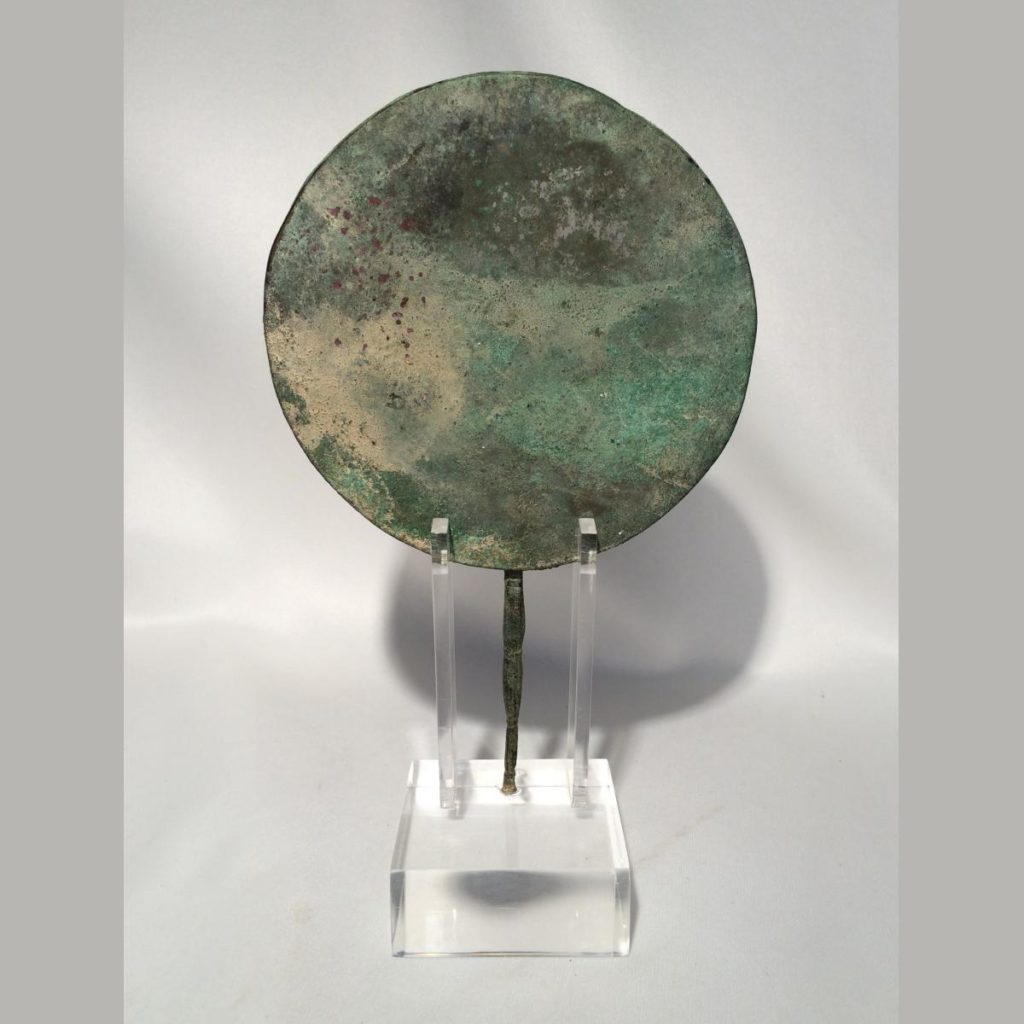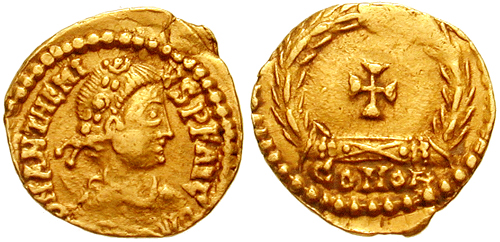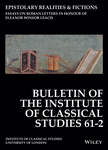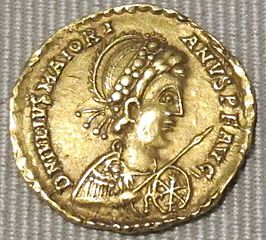Scott Kennedy has authored an article entitled ‘Winter is Coming: The Barbarization of Roman Leaders in Imperial Panegyric from A.D. 446-68’ in CQ June 2019 online


Scott Kennedy has authored an article entitled ‘Winter is Coming: The Barbarization of Roman Leaders in Imperial Panegyric from A.D. 446-68’ in CQ June 2019 online

Buongiorno, Pierangelo, ‘Ex vetere senatusconsulto Tiberiano. Nota in margine a Sid. ep. 1.7.12′, in Emmanuelle Chevreau et al. (eds), Liber amicorum. Mélanges en l’honneur de Jean-Pierre Coriat, Paris, 2019, 65-72.
| Academia
By ascribing to Tiberius a law that was only promulgated much later by Theodosius, conceding a longer lease of life to people on death row, Sidonius plausibly wanted to lend greater authority to this law in favour of Arvandus.

Sidonius’ famous motto “Well aware that one’s thoughts are exposed in a letter collection like a face in a mirror” guides Luciana Furbetta’s recently published article (going back to a 2014 conference) on the concept of a letter as a mirror of self in his correspondence.
See the website Bibliography, tab 2018.

In Vichiana 56-1, 33-60, Francesco Montone just published: ‘Il Panegirico ad Antemio di Sidonio Apollinare: metapoetica e intratestualità’.
Read abstract: MONTONE IL PANEGIRICO AD ANTEMIO 2019

Claudia Schindler writes about the catalogue of poets in Carm. 9 as compared to similar catalogues in Ovid and Manilius: ‘Macht und Übermacht der Tradition. Dichterkataloge in der lateinischen Literatur von Ovid bis Sidonius’. More in Bibliography 2018.
Abstract
Catalogues introducing poets and their works are widespread in Roman literature. By mentioning a poetic predecessor the author of the catalogue places himself in the respective literary tradition. My contribution analyses three poetic catalogues from the Early Empire (Ov. Am. 1.15 and Manil. 2.1-52) and Late Antiquity (Sidon. Carm. 9) with a focus on the role of the self-referential author. The study shows that the (youthful) first person narrator of Ovid’s Amores is very confident in his own poetic ability and thus his position among his literary predecessors. The purpose of the catalogue is twofold: the author attempts to highlight his own poetic prowess and argues for poetic immortality in a long line of meticulous scientific arguments. Manilius, on the other hand, justifies his claim to be the first astronomical-astrological poet by highlighting the novelty of his own poetic concept in comparison to the literary tradition. He demonstrates that his originality derives not so much from his choice of material, but the method employed and his capable intellectual penetration of the subject matter. The late antique poet Sidonius Apollinaris designs his catalogue as recusatio, and explicitly distances himself from the literary tradition, which the first-person narrator perceives to be overwhelming and suppressive. The conflict between the self-fashioning and the highly learned poetry of Sidonius creates a paradox, which the recipient is challenged to identify. The three catalogues studied here represent a paradigm shift that transforms the literary tradition from an opportunity in Ovid and Manilius to an overpowering, incontestable concept in Sidonius, with which he nonetheless copes in his poetry.


Recently published: ‘Il mordax dens di Sidonio Apollinare nel panegirico per Maioriano’, Lexis 36 (2018) 305-15, by Tiziana Brolli.

Marco Onorato, ‘Un ospite per Apollo: intertestualità interna e codice ausoniano nella metatoria pagina di Sidonio a Lampridio’, BSL 48 (2018) 492-523.
Read on Academia